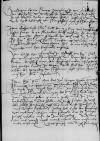Newge zceythungen ist von ⌊Lubbeck⌋ her geschryben vor vorhafftige zceytungen, / das dy knechten, dy vor ⌊Bremen⌋ haben gelegen, sollen geszlagen szeynnn unde beyde graffen von Manszffelth myth geblyben szeynnn.
Item: ⌊Ke
<y>
szerliche mayestet⌋ hott den 29 Maii aus ⌊Wytthenborgk⌋ losszen furen 200 metallen stucken geschutcz, dy gancz schon geweszen szeynn. Ffolgende den ersten tagk in Iunii ist ⌊keyserlicher mayestet⌋ myth szeynem hauffen uffgebrachen noch ⌊Meydeborgk⌋ zcu. Was ⌊szeyne mayestet⌋ do ausrichten wyrth, wyrdtt man hernachmals erfaren.
Item: Es ist hye och enthlich in schrifften, das ⌊keyserlicher mayestet⌋ eyn vordrack myth dem ⌊korfursten von Saxen⌋ szoll gemochet haben. / Erstlich hott der ⌊korfursth⌋ molen abegetreten das gantcze landth zcu ⌊Saxen⌋, unde szall ⌊keyserlicher mayestet⌋ / adder der ⌊pryntcz von Hispanien⌋ gefangner szeynnn nach keyserlicher mayestet gefallennn.
Item: ⌊Keyserliche mayestet⌋ hott das zcu ⌊Saxen⌋ gegeben ⌊hertczick Mawritz⌋, auszgenomen ⌊Wytthenbarckgk⌋ unde ⌊Gotta⌋, / dy beyde festen wyll keyserlicher mayestet vor sich erhalthennn. / Des szoll ⌊hertczick Maurytcz⌋ des ⌊korfursten⌋ ⌊beyde szons⌋ jaer jherlich geben 50000 gullen munthe zcu irer erhalthunge. / Des szollen ⌊dy jungen fursten ⌋szo woll der althe ⌊korfursten⌋ uff das lanth nicht szachennn noch sachen losszennn. / Alles das hott der ⌊korfurst⌋ vorwylligeth, / aber mhen schreybtt, das ⌊dy jungen fursten⌋ wyllen nicht do innbewylligen, / unde was doraus werden wyll, magk mhens hyr nachmols {mols} erfaren. Gott ffugen alle dingen zcum besten.

